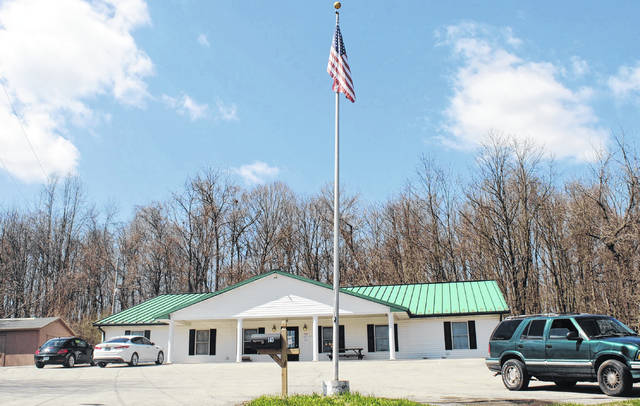
The statewide coronavirus lockdown has hit the Highland County Homeless Shelter in a big way, with director Greg Hawkins telling The Times-Gazette that though searching out supplies has become a challenge, the task of helping clients transition from the shelter into gainful employment and their own housing has become daunting.
“It’s had a significant impact on our clients finding employment, and housing has basically just shut down,” Hawkins said, “and when you combine that with all of the health concerns and social distancing, it’s really challenging.”
Under normal conditions, clients can stay at the shelter for up to 90 days while seeking employment and affordable housing, but he said under this “new normal,” the shelter is trying to navigate through the waters of no jobs and limited housing due to landlords fearful of contracting the coronavirus.
“We really need monetary donations more than food donations,” Hawkins said. “Toilet paper and things like that are so limited right now, and what we really need is help in paying the bills, things like the utilities and feeding our clients.”
The Coalition on Homelessness and Housing in Ohio is asking the Ohio General Assembly to appropriate $20 million for emergency homeless services in legislation to respond to the coronavirus pandemic.
The organization found emergency shelters and other homeless programs such as the Highland County Homeless Shelter lack essential supplies and space necessary to implement basic guidance for containing the spread of COVID-19.
Hawkins said the local facility has the capacity to house 28 individuals, with 20 people now living at the shelter, but added it has limited space for storage and is presently in good shape. But the uncertainty about how long the quarantine will last makes him want to prepare for the worst.
What worries him is if the quarantine is extended, the number of clients the shelter can hold may reach capacity soon. But despite that, he said the facility’s doors were still open with extensive case management still underway, albeit remotely at times.
“It’ll continue growing,” he said. “The eight slots we had open up was due to a couple of families having moved out and acquiring housing just before the lockdown hit.”
Since state and federal funding could take weeks to reach Ohio’s homeless population, COHHIO created the Pandemic Emergency Fund with $500,000 from the organization’s own rainy day fund to provide immediate relief to front line homeless agencies like the Highland County shelter.
With donations from other donors, the organization says the fund now has a balance of over $660,000 and will start issuing checks Thursday to local homeless agencies.
Hawkins said that contributions to the Highland County Homeless Shelter can be made through the shelter’s Facebook page via PayPal, by shopping at Kroger and signing up for the Kroger Community Rewards program, or the “old-fashioned way” by mailing a check to Highland County Homeless Shelter, 145 Homestead Ave., Hillsboro, Ohio 45133.
Reach Tim Colliver at 937-402-2571.


